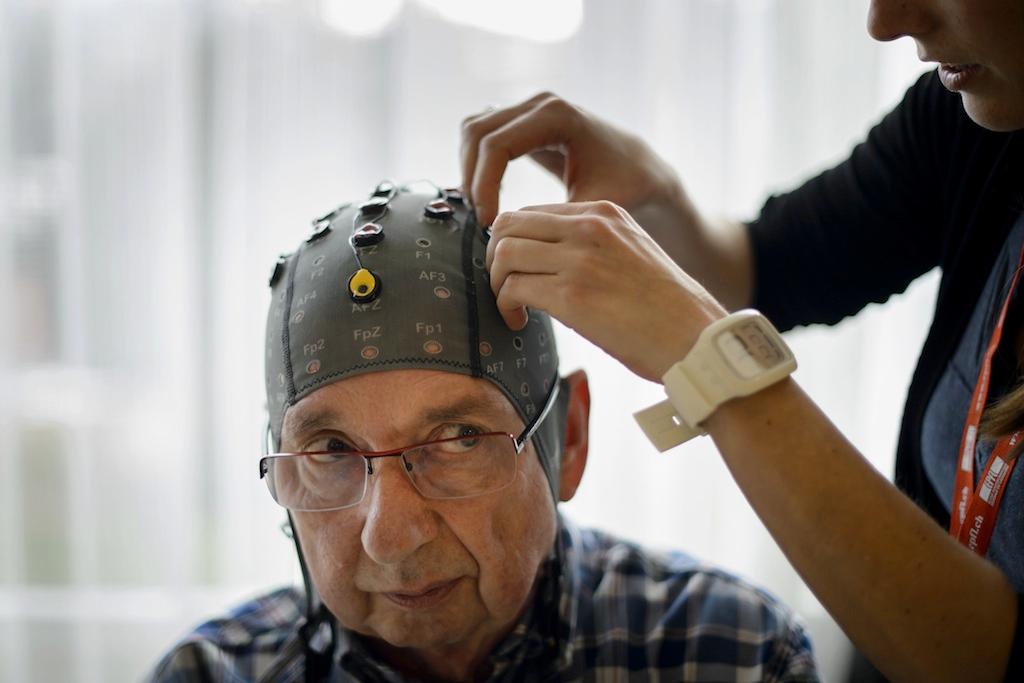Could electroshock therapy work — for learning math?
Physiotherapist Vanessa Buhlmann places electrodes on the head of patient Jean-Francois Vernetti during a presentation of a brain-machine interface by the Swiss Federal Institutes of Technology of Lausanne (EPFL) on January 23, 2013 in Sion. More than one hundred patients suffering from severe motor impairments have voluntarily participated in the development of non-invasive brain-machine interfaces.
The mathematically challenged tend to feel that they're doomed to their fate, but a small study suggests that a mild form of electrical brain simulation can improve student's mental math and memorization abilities — and even more interestingly, the effects appear to be long-lasting.
First published in the Current Biology journal, researcher Roi Cohen Kadosh of the University of Oxford found that "With just five days of cognitive training and noninvasive, painless brain stimulation, we were able to bring about long-lasting improvements in cognitive and brain functions," according to Eurekalert.
Thirteen out of twenty-five participating Oxford students were given random electrical stimulation to the brain and then presented with a series of simple mathematical tests, such as multiplication and subtraction problems — a persistent issue for the 20% of the population that reports difficulties with mental math.
The students who recieved the stimulation were markedly better at mathematical tasks."Performance on both the calculation and rote learning tasks improved over the five days, and the former improvements were maintained until six months after training," said Kadosh to the BBC, who added that neuro-imaging seems to indicate the stimulated brain areas make more efficient use of both oxygen and nutrients.
Six months after the experiment, Kadosh managed to get 13 of the students to return and be tested again. He found that the six returnees who had recieved brain stimulation were on average 28% faster than the control group when it came to correctly answering calculation problems, indicating (on a small scale) that such stimulation has a long-term effect.
Don't let images from "One Flew Over the Cuckoo's Nest" fool you: this form of brain stimulation is decidely mild. The technique, dubbed "transcranial random-noise stimulation" is so mild that Kadosh told Nature “people ask ‘are you sure it’s on?’"
Electrode stimulators are unlikely to find their way into classrooms anytime soon, as the technology is decidely new and more research needs to be carried out.
"The findings are intriguing," cognitive neuroscientist Dr. Daniel Ansari said, according to CBS. "The training used here is highly contrived and does not resemble the way in which math skills are typically acquired," he added.
As it stands, the research may provide a sliver of hope to the learning-disabled, people struggling from strokes and other neurological conditions, and perhaps even the terminally math-phobic. “Some people will say that those who are bad at mathematics will stay bad," said Kadosh to Nature. "That might not be the case.”
Our coverage reaches millions each week, but only a small fraction of listeners contribute to sustain our program. We still need 224 more people to donate $100 or $10/monthly to unlock our $67,000 match. Will you help us get there today?
